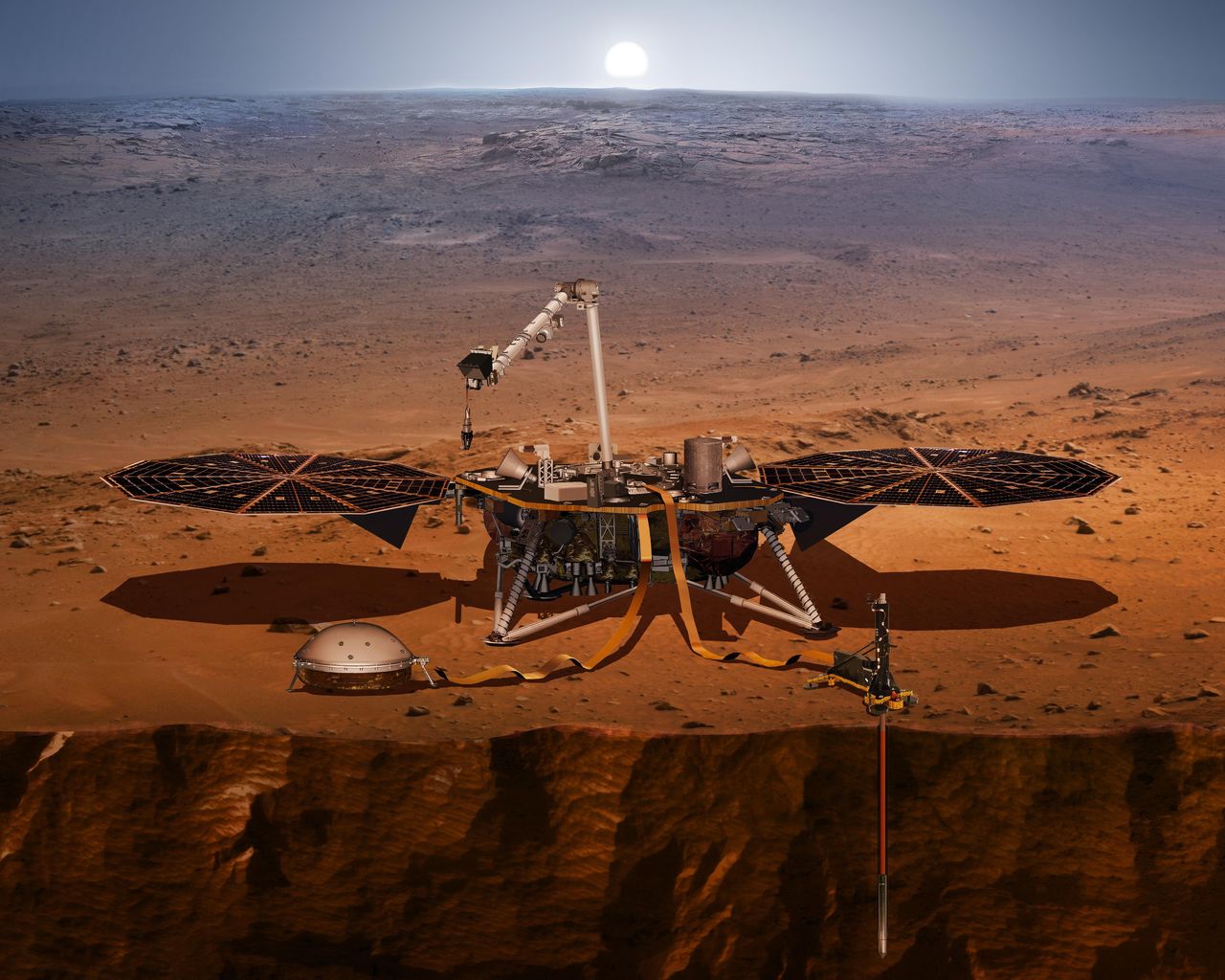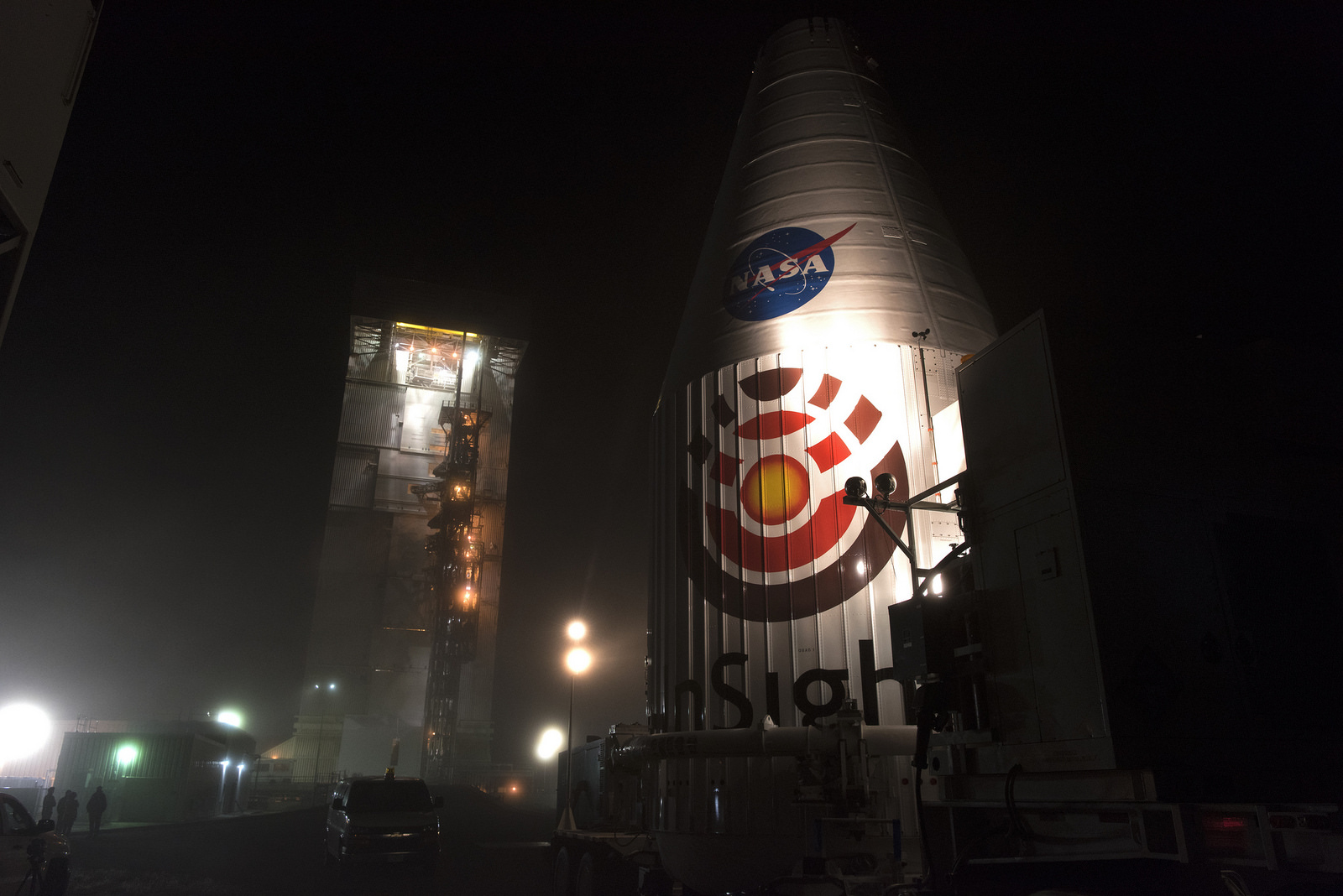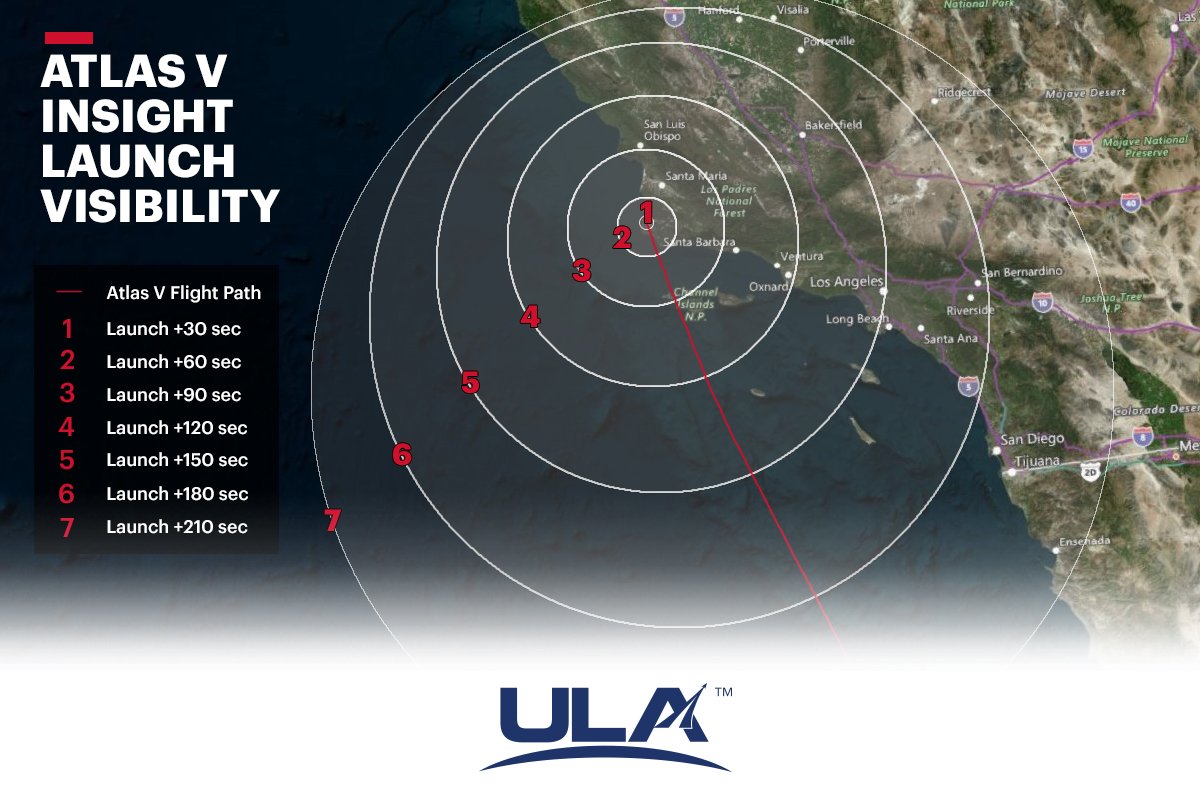NASA Is Launching Its InSight Mars Lander Early Saturday: Watch Live
Update for 8 a.m. ET: NASA's InSight Mars lander has successfully launched into space. Read our wrap up here: NASA's InSight Launches to Probe Red Planet's Deep Interior
NASA's next mission to Mars will launch early Saturday morning (May 5), and you can watch it live online.
The agency's InSight Mars lander is scheduled to lift off atop a United Launch Alliance Atlas V rocket from California's Vandenberg Air Force Base on Saturday at 7:05 a.m. EDT (1105 GMT, 4:05 a.m. local California time). Watch the action live here at Space.com and on our homepage, courtesy of NASA TV, beginning at 6:30 a.m. EDT (1030 GMT).
And if you live in Southern California, you may even be able to see the liftoff from your yard or balcony. The fiery trail carved into the predawn sky by the Atlas V could be visible to folks as far south as the San Diego area, given clear skies over Vandenberg and the viewer's location, NASA officials have said. [10 Surprising Things About the InSight Mars Lander]

Folks near the launch site may have a tough time seeing the liftoff, because fog is expected to hover in the Vandenber area, according to Air Force weather officers. But that fog will likely top out at around 600 feet (180 meters) above sea level, so if you can find a hill or ridge higher than that, you could still get an eyeful.
If all goes according to plan, InSight — whose name is short for Interior Exploration using Seismic Investigations, Geodesy and Heat Transport — will touch down just north of the Martian equator on Nov. 26, then begin its two-year science mission after a series of checkouts.

InSight is equipped with a super-sensitive seismometer that will detect "marsquakes" and vibrations created by micrometeorite strikes, as well as a heat probe that will hammer itself up to 16.5 feet (5 meters) into the red dirt. Mission team members will also precisely track InSight's location on the Martian surface using the lander's communications gear, gathering data that will reveal tiny wobbles in Mars' axis of rotation.[In Pictures: NASA's InSight Lander to Probe Heart of Mars]
Get the Space.com Newsletter
Breaking space news, the latest updates on rocket launches, skywatching events and more!
Taken together, these observations will show researchers a great deal about Mars' interior structure and composition, which in turn will shed light on how rocky planets form and evolve, mission team members have said.
InSight was originally supposed to launch in March 2016, but a leak in the vacuum chamber surrounding the lander's seismometer forced a delay. (Mars and Earth align properly for interplanetary missions just once every 26 months, and the vacuum-chamber issue could not be fixed before the 2016 launch window closed. The 2018 window runs through June 8.)

Editor's note: If you capture a stunning photo or video of NASA's InSight Mars lander launch and would like to share it with Space.com for a story or gallery, send images and comments in to spacephotos@space.com.
Follow Mike Wall on Twitter @michaeldwall and Google+. Follow us @Spacedotcom, Facebook or Google+. Originally published on Space.com.
Join our Space Forums to keep talking space on the latest missions, night sky and more! And if you have a news tip, correction or comment, let us know at: community@space.com.

Michael Wall is a Senior Space Writer with Space.com and joined the team in 2010. He primarily covers exoplanets, spaceflight and military space, but has been known to dabble in the space art beat. His book about the search for alien life, "Out There," was published on Nov. 13, 2018. Before becoming a science writer, Michael worked as a herpetologist and wildlife biologist. He has a Ph.D. in evolutionary biology from the University of Sydney, Australia, a bachelor's degree from the University of Arizona, and a graduate certificate in science writing from the University of California, Santa Cruz. To find out what his latest project is, you can follow Michael on Twitter.
